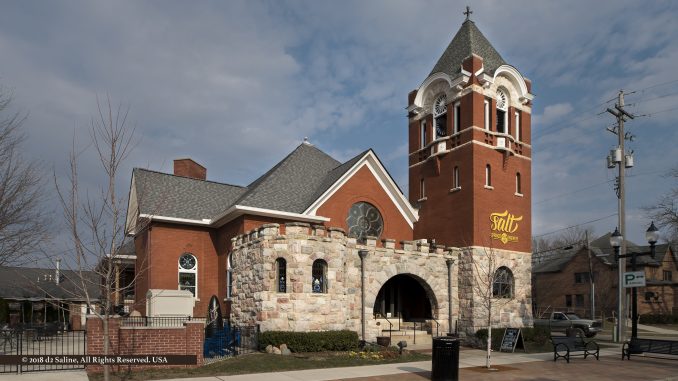
When you think of a true craft brewer, what are the first images that come to mind? Old world tradition? Fiercely independent? Artist for the palate? [1]
At least two professors in the Eastern Michigan University (EMU) Department of Chemistry would probably agree with all of the above. They’re more interested in what’s on tap at Salt Springs Brewery than beer that’s been bottled for mass distribution. But that focus doesn’t follow a course that’s been handed down to them.
In 2016, EMU began offering a Fermentation Science Major on its Ypsilanti campus. Co-developed by Drs Cory Emal and Gregg Wilmes, it’s a program designed to help students understand the processes behind brewmasters’ work and how better to control them. Anticipated benefits include improved consistency and reduced waste. [2,3,4]
According to Dr Emal, the economic impact of craft beer in Michigan was estimated at two billion dollars when EMU launched this major. That number is in the context of a total US industry that sold $111.1 billion in beer and malt-based beverages to domestic customers at the time. [5]
“Outside of pre-med, it’s not often obvious what becoming a chemist means,” Dr Wilmes told Saline Journal. “This program prepares scientists to take jobs in a growing field. Students are trained in a variety of lab techniques and sciences that can be applied to quality control positions, for example.”
Another feature of this endeavor is an expanding circle of connections to smaller brewing operations in the area. This will help degree candidates fulfill internship requirements and provide brewers with the opportunity to see the benefits of formal fermentation science training.
An important relationship in Saline has already been established with Salt Springs Brewery. [6]
Brewmaster and founding partner Edward Brosius can readily see value in employees who bring this structured foundation to their work with him. “People coming out of these programs are prepared to learn from mentors,” he said to Saline Journal earlier this week.
Mr Brosius can additionally appreciate this as the holder himself of a technical degree in engineering from Northwestern University.
An Eastern Michigan University education in fermentation science isn’t just good for beer. It applies to a variety of fermented products, including cheese, sauerkraut, sourdough bread, and yogurt — as well as biofuels and pharmaceuticals.
“This is not a course in ‘how to brew beer,'” Dr Emal emphasized. In fact, “someone who does not drink alcohol can complete this course without drinking.”
Neither does Drs Emal or Wilmes intend this program to direct those in the craft brew industry. They hope that a part of their networking outreach will help them establish an advisory board for their program. “We’d like to be at the center of a hub that identifies common problems,” Dr Emal said. “How can those problems be solved, tested, reported?
“I think Gregg and I would be happy if, ten years from now, EMU was a hub to help individual businesses connect with people who could answer their questions and solve problems as they arise.”
References
- “Craft Brewer Defined” Brewers Association.
- “Fermentation Science [BS]” Eastern Michigan University.
- “Fermentation Science” Eastern Michigan University.
- “18th Century English Brewing” Ron Pattinson (April 25, 2018) Eastern Michigan University.
- “The US Beer Industry 2017” National Beer Wholesalers Association.
- Salt Springs Brewery (home page).



